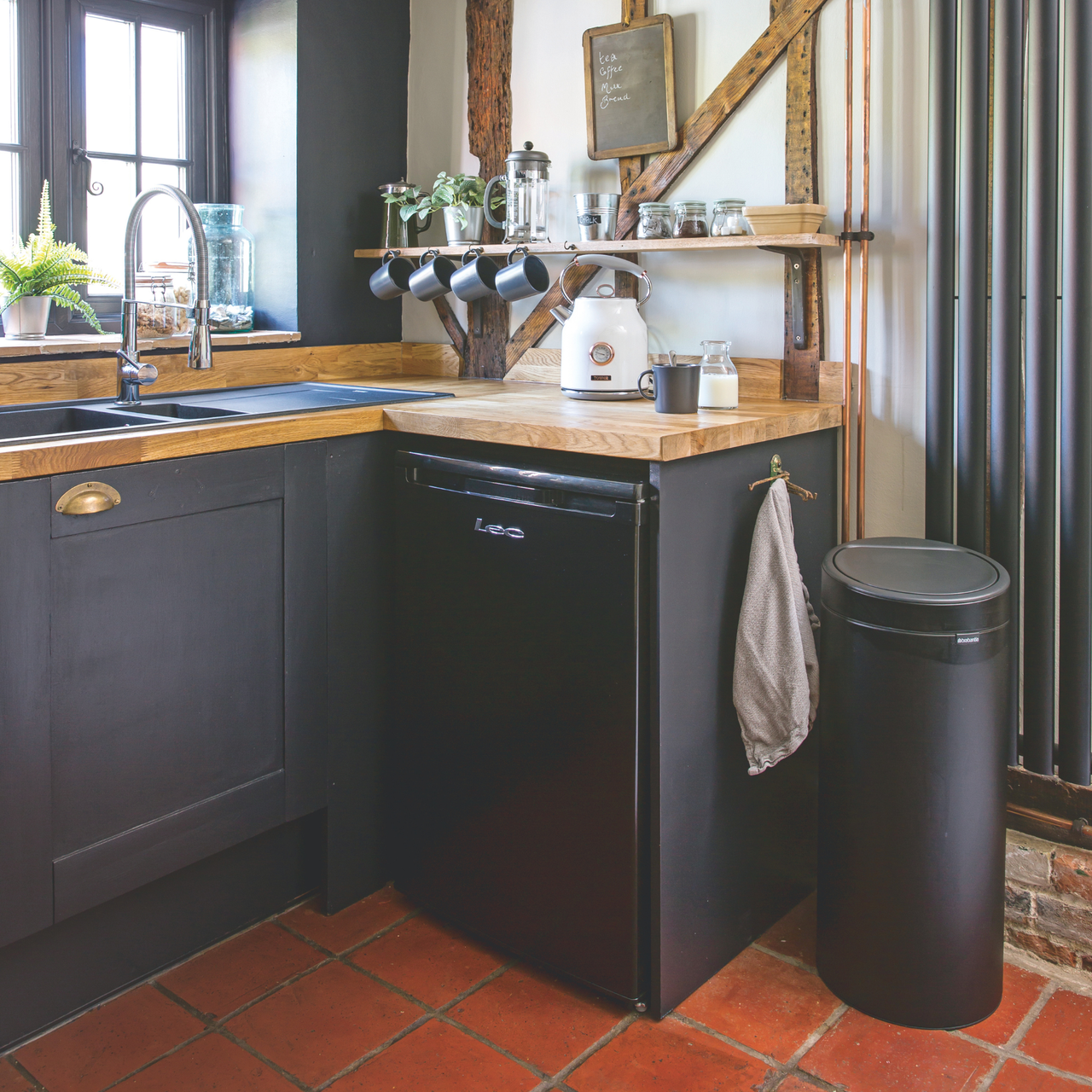
Even thinking about maggots is enough to make me feel sick, but with warm, humid weather and an abundance of flies, there is a greater risk of finding maggots in your kitchen bin right now. Which is why, with a side of retching, I asked the experts the best way to prevent maggots in a kitchen bin.
Maggots are gross, and if you’ve made this gruesome discovery in your kitchen bin, then you’ll need to know how to kill maggots. But I’m here to explain how to prevent them in the first place. I, for one, know I would be much happier if I never had to see a maggot again.
Unfortunately, your kitchen bin is a great breeding ground for flies, which results in maggots (and then even more flies). So, as well as getting rid of flies, you also want to remove food and moisture from your bin to make it less hospitable. Here are four steps the experts say you need to take to prevent maggots in a kitchen bin.
1. Clean your bin
One of the most important things you can do is clean your bin. It may sound obvious, but flies love any warm, moist, sticky residue that may be left behind from your waste, making it the ideal breeding conditions.
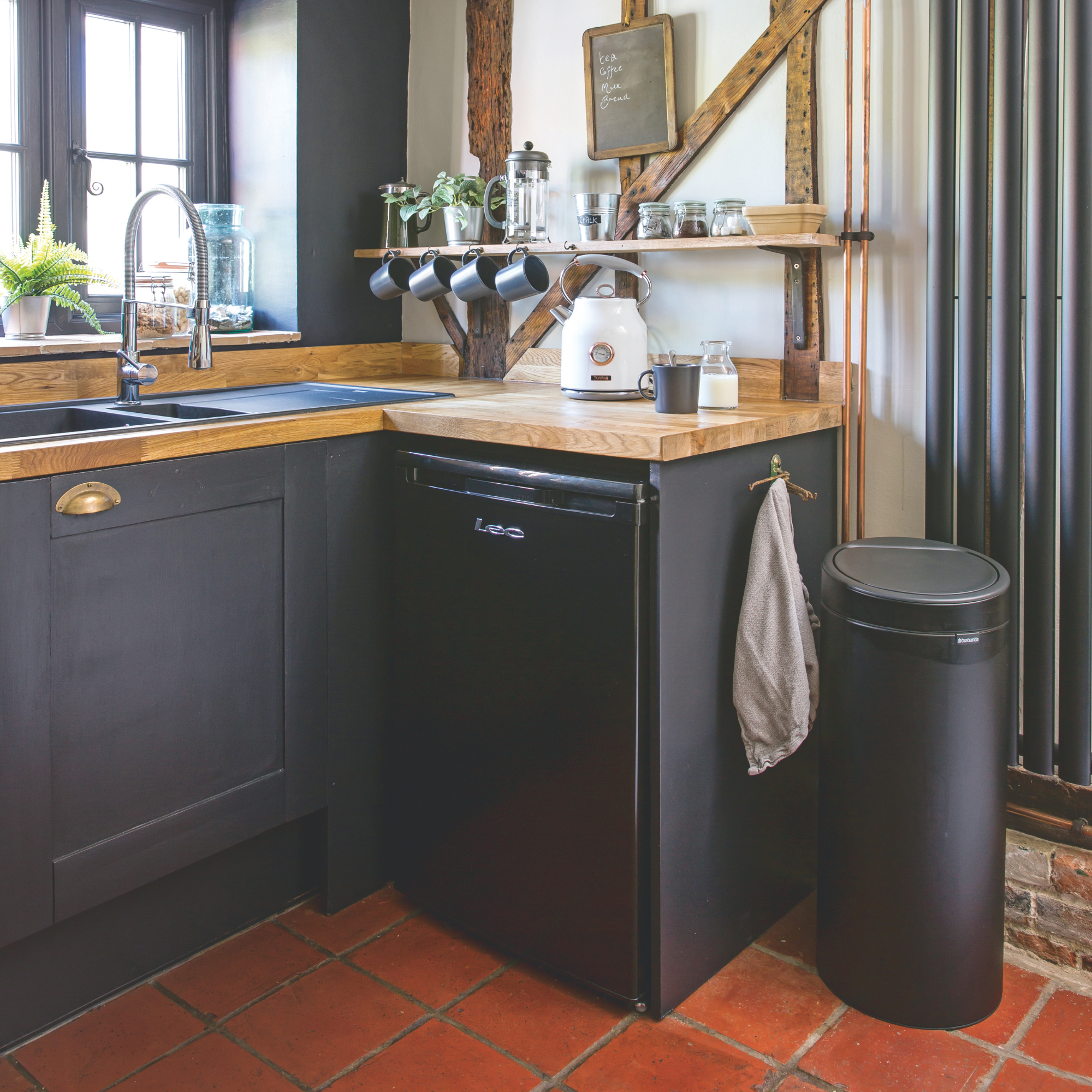
‘Typically, if flies hatch eggs in your bin, these eggs can turn into maggots within a 24-hour period, so it’s important to empty and clean your bin as regularly as possible. If your bin contains food waste, it must be emptied daily as food waste decomposes rapidly, resulting in foul odours that attract flies. At a push, bins without food waste can be emptied every few days,’ says Ryan Kaila, waste and recycling expert at Kingfisher Direct.
‘Often, liquid from ripped bin bags can gather in the bottom of your bin, so it’s important to deep clean your bin a minimum of once per week, if not twice. This will keep your bin and kitchen smelling fresh and prevent flies from breeding in it. Every time you empty your bin, make sure to give it a quick wipe down using a disinfectant wipe. This will help to prevent the buildup of dirt and bacteria in your bin.’
Consider using a cleaner with bleach, such as Astonish’s Multi-Purpose Cleaner with Bleach (£1.10 on Amazon), as this will kill any eggs in your bin.
2. Remove food waste quickly
Another thing you need to ensure is that food waste should not be left in your kitchen or food waste bin for long periods of time.
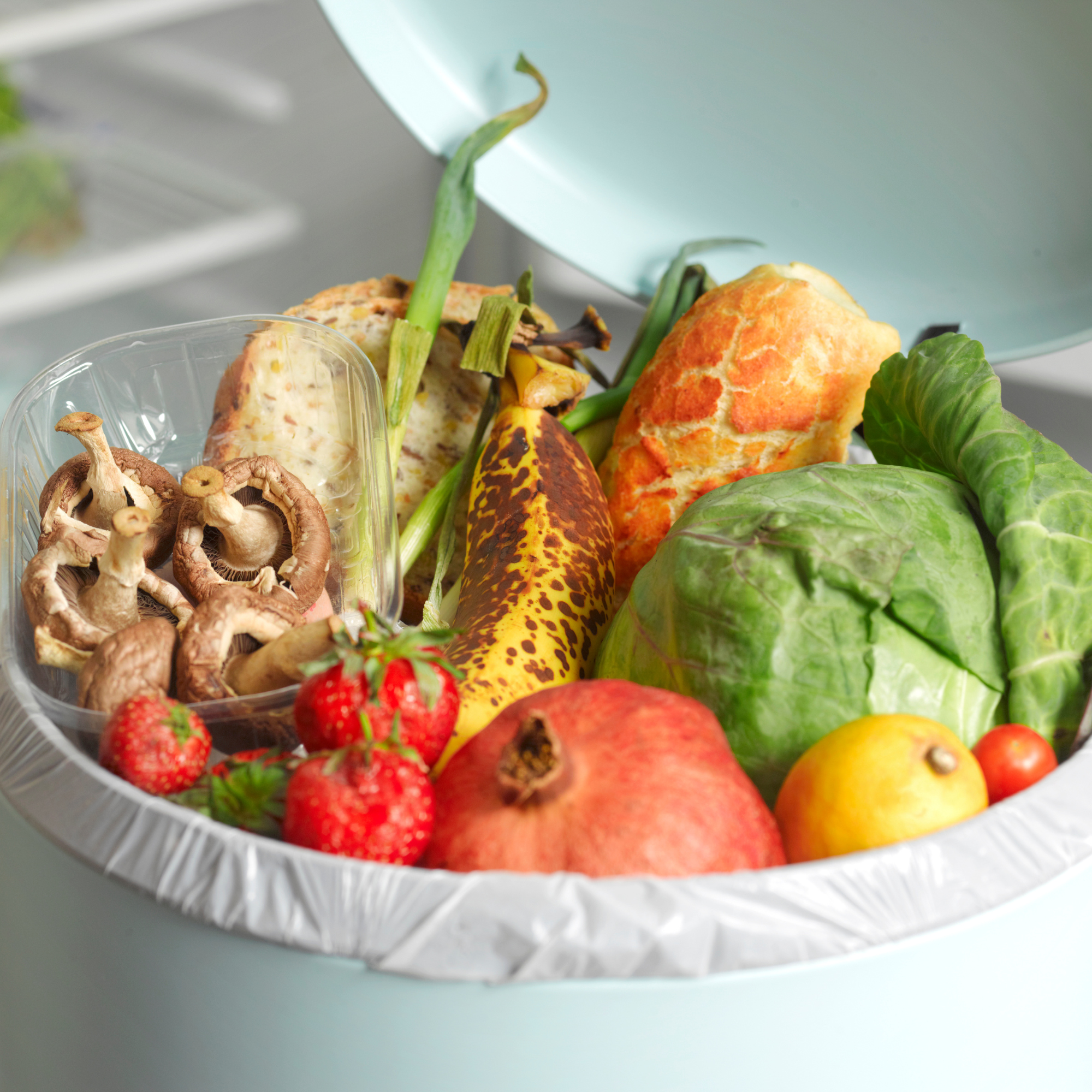
‘The longer food sits in the bin, the more attractive it becomes to flies. Empty your kitchen bin daily, especially during warm weather. Avoid leaving fruit peel, meat scraps and other rotting waste in the bin for more than a day,’ says Daniel Steward, Managing Director at Shield Pest Control.
3. Use a scent deterrent
Surprisingly, there are a few scents flies hate, and they typically tend to smell good to us! And you can use these scents to deter flies from breeding in your bin.
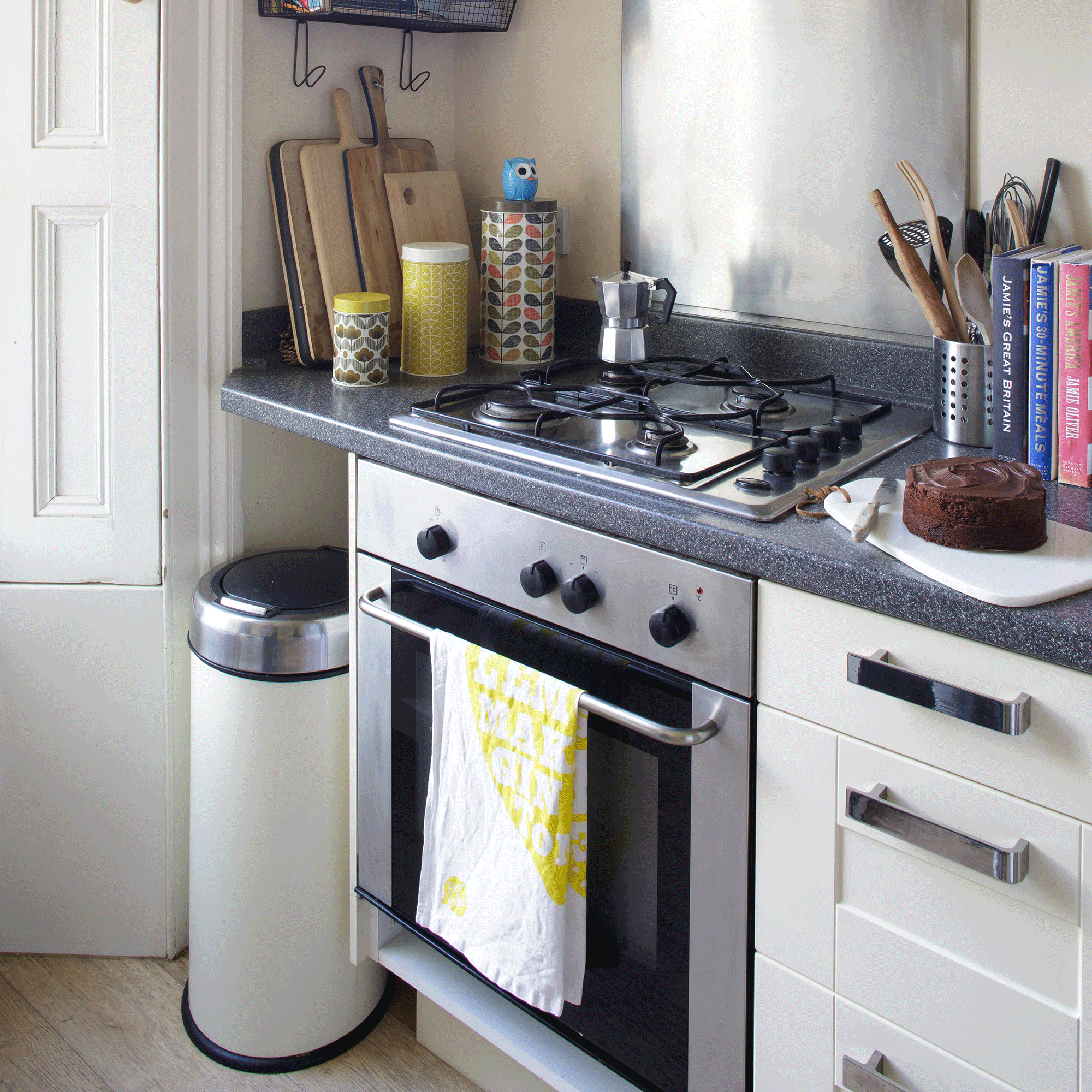
‘Adding citrus peels, a cloth with a few drops of eucalyptus oil, or a cup of vinegar near or inside the bin can help keep them away. In warmer months, you can also use a fine mesh cover, or move the bin to a cooler location,’ says Daniel.
Ryan also recommends placing certain herbs in your bin as a deterrent.
‘Place sprigs of lavender and mint in the lid of your bin to help deter flies and reduce the likelihood of maggots in your bin,’ he says.
4. Double bag your bin
Another important deterrent you should consider is double-bagging all of your waste.
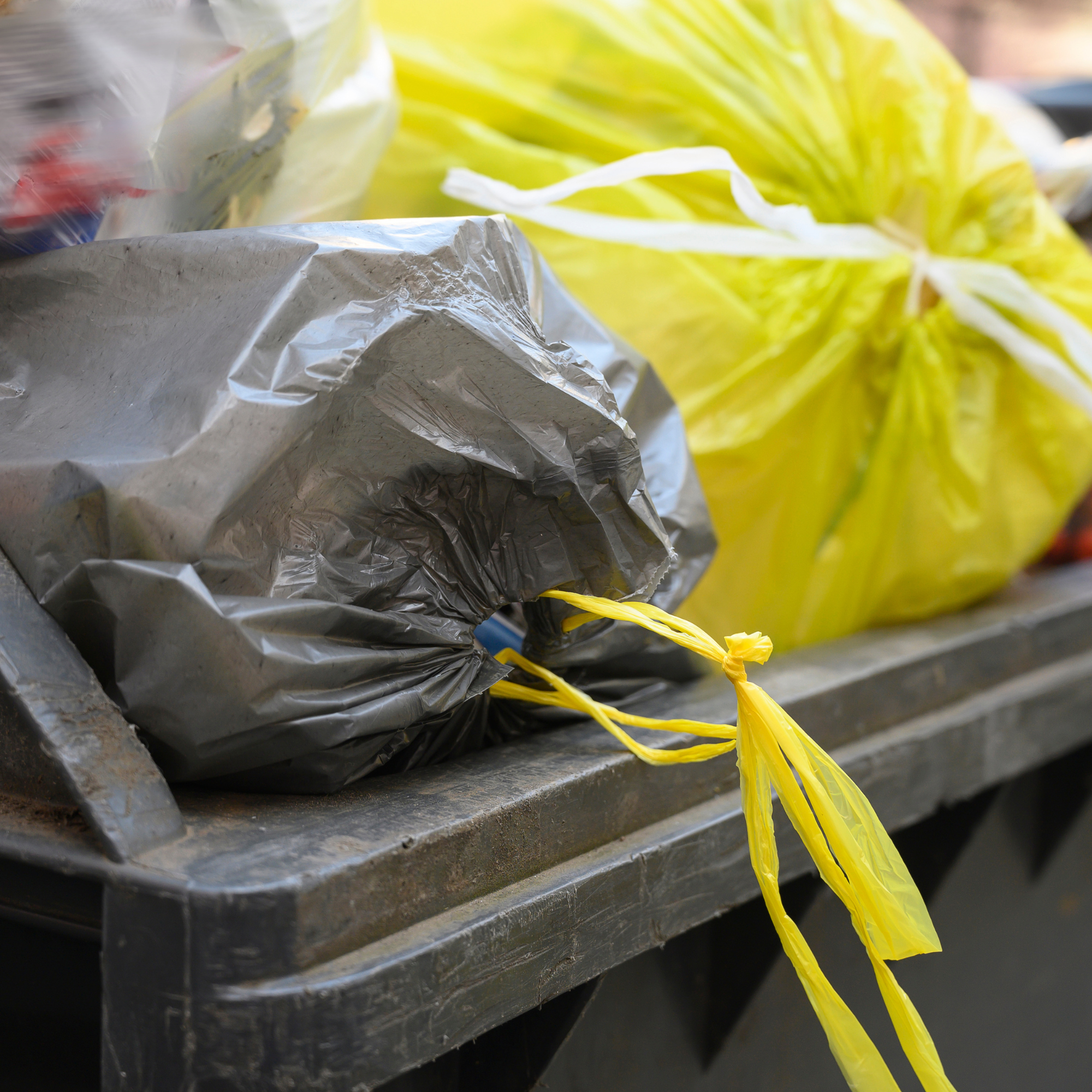
‘Placing two bin bags in your bin at a time can be helpful for preventing rips and tears, and minimising foul odours. If your bin bag rips, it can cause liquid to seep into the bottom of your bin; this liquid can produce foul odours that attract flies,’ says Ryan.
Alternatively, you can buy extra-strong bin bags, such as these leak-resistant bags for £9.75 on Amazon.
This bin buddy will give your bin a citrus scent (another smell flies don't like), as well absorbing excess moisture and leaks.
During summer, you should clean your bin at least once a week. This cleaner is suitable for both indoor and outdoor bins, and cleans, sanitises and deodourises.
Place lavender in the bottom on the bin as flies don't like the scent.
Keeping your bin clean, sealed and unappealing to flies will stop them from laying eggs, therefore producing maggots in your bin. So you don’t have to worry about dealing with gross maggots in the future.







